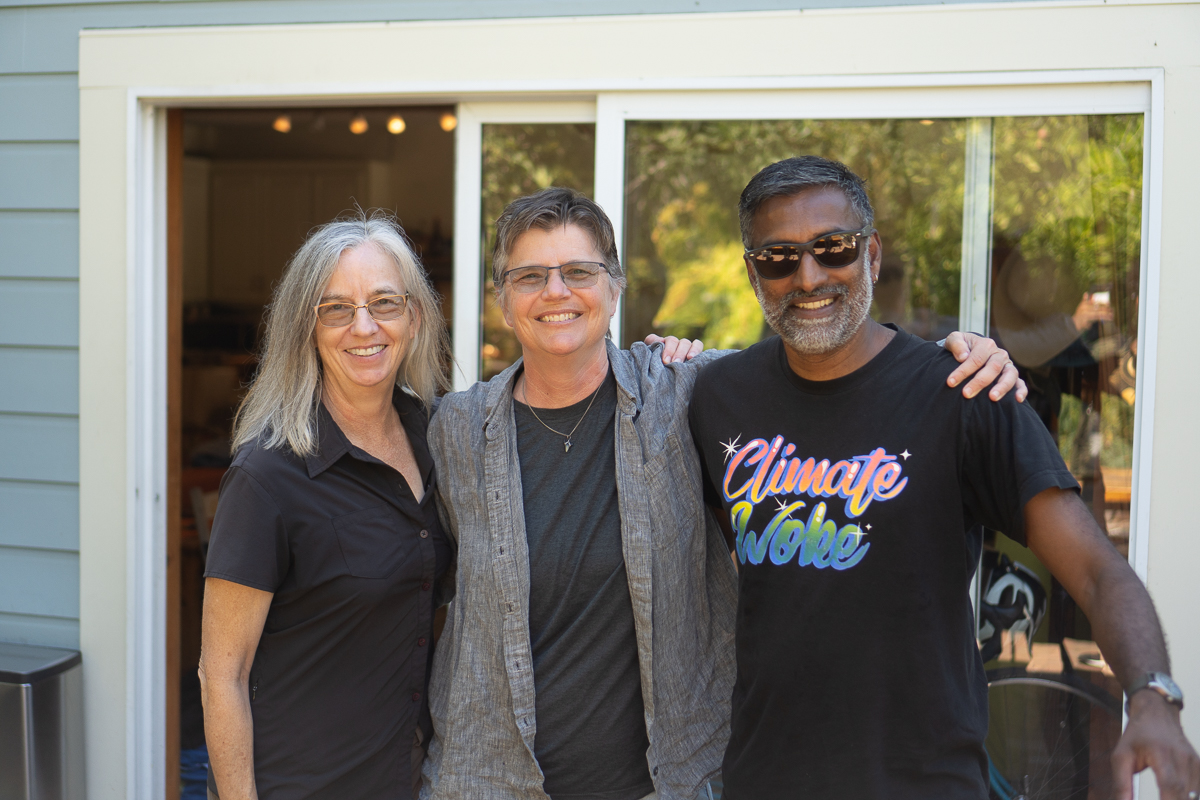
Welcome to our Certificate in Climate Change, Faculty Community, we’re glad to have you with us!
Our program is an interdisciplinary project with faculty teaching courses from multiple colleges and departments across the campus.
We all share the common goal and interest in expanding education on all aspects of climate change.
The curriculum is managed by a Steering Committee consisting of faculty and student representatives from multiple colleges across campus. Click here to learn more about our Certificate Steering Committee.
How to Propose a Class for the Climate Change Certificate
All faculty across campus are encouraged to join our program by proposing their courses for inclusion in the Certificate. The Certificate is structured into five categories of courses and requirements:
A Foundations Course
A Causes Course
An Impacts Course
A Solutions Course
And a Practicum Course
Feel free to jump right into the Course Application Page here, or else read on below for more information about our selection criteria.
Our Program Learning Objectives map most significantly onto the Causes, Impacts, and Solutions criteria, with an additional PLO dedicated to Advanced Climate Justice and another one dedicated to the Practicum.
Foundations and Practicum courses are more specialized. Foundations courses are usually significantly, if not entirely, about climate change, providing our students with a robust foundation in a subtopic area. The Committee doesn’t receive applications for Foundations courses directly, but instead nominates courses demonstrating significant coverage of climate change throughout its entirety.
Practicum classes are specially designed to guide students through applied projects on climate change. Faculty interested in developing a Practicum course should speak with a Steering Committee member.
In general, the application process would be the same, with an additional note to the Chair of the committee indicating an interest in aligning their course in the Practicum category.
Step 1: Review the PLOs for the program, and review and adjust your course syllabus accordingly to satisfy the program requirements
Step 2: Confer with your Department Chair to get approval to list the course in the Certificate. We will follow up with the Chair after the Steering Committee approves the course, and the Chair’s role is to confirm that the course will be offered at least once every two years
Step 3: Complete the Google Form Application, and upload your syllabus and any other syllabi from other instructors teaching the same class and any other supporting material as needed
Step 4: Follow up with the Steering Committee’s decision notification
Requirements for Approval into the Certificate
Here are the requirement guidelines for courses in our Certificate
- Courses can be approved for one or more more categories or PLOs
- Overall, a course’s content should be more than 50% focused explicitly on climate change to be included in the Certificate
- Courses should meet a minimum of 30% for a single PLO to be in that category. For, example, ENVS 480 is a “Solutions” course and an “Impacts” course, meaning that at least 30% of the course content fulfills Solutions and Impacts PLOs i.e., PLOs #1 and #2 respectively.
- To be “advanced climate justice,” a course must meet the “development” or “mastery” levels for PLO#4, plus 30% in PLO#4.
- To be considered for the Practicum requirement PLO#5, a substantial portion of the course must have a Climate related applied component.
- Departments that alternate staffing for existing classes, or offer multiple sections for a single class with different instructors, must be consistent in including the Certificate PLOs for each section. Courses with multiple sections taught by different faculty must have all of the syllabi meet the requirements of at least one PLO to be included in the Certificate, and that PLO should be the same for both sections.
- For example, if there are two sections of GEOG 435 Geography of Global Transportation taught by two different instructors, and they want the course to satisfy the Solutions category, each section’s syllabus must satisfy the 30% PLO for Solutions and the 50% overall on climate change content requirement according to the criteria above.
- This means that unfortunately, variable topics classes cannot be included in the Certificate unless all versions of the class are about climate change. Classes with multiple instructors only need one faculty to submit the application, but should include all relevant syllabi.
- All courses in the Certificate should be offered at least once every 4 semesters.
What is the Review Process Like and How Long Does It Take?
We review the courses during the semester in the order received. Reviews are generally quick, usually within two to three weeks after they are submitted. We promptly notify faculty of our decisions and provide notes on the PLOs and the syllabi where and when necessary. If needed, faculty can be invited to the Steering Committee meetings for further discussion if a course isn’t reaching the PLOs or there is otherwise some confusion. After our Committee makes a decision for approval, we submit the curriculum changes to the Academic Senate’s Campus Curriculum Committee, and once they approve the changes, it moves on to the Academic Senate at large for their confirmation and approval as well. These final stages take a little longer and are necessary for the curricular changes to be included in the campus Bulletin, but in the meantime, new curricular additions are shared internally among our Certificate advisors, and we can make substitutions as needed.
If you have any questions on the course application and review process, reach out to the Steering Committee Chair, Logan Hennessy: loganh@sfsu.edu